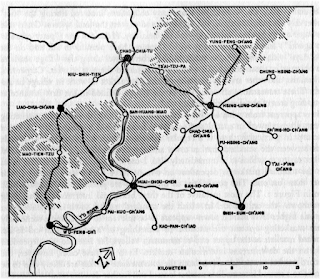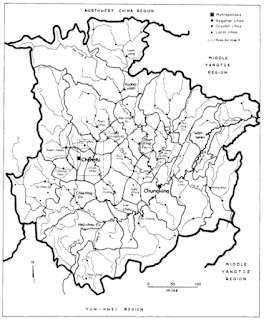By official count, the incidence of popular protest in China has increased ten-fold in the past fifteen years. Kevin O'Brien and Rachel Stern report that the Chinese state reported 8,700 "collective incidents" in 1993, and this number had grown to 87,000 by 2005 (12). And the issues that have evoked protest have expanded as well: land seizures, egregious local corruption, lay-offs and labor mistreatment, ecological and environmental concerns, and the Sichuan earthquake and building collapses, for example. (The photo above is drawn from a 2008 story on factory protests in Dongguan in the Telegraph (link).) A recent volume by O'Brien and Stern, Popular Protest in China , is a collection of some of the best current work by China scholars on popular protest in contemporary China. Contributors include some of the researchers who are doing the most detailed work on this topic today, including William Hurst (The Chinese Worker after Socialism)
, is a collection of some of the best current work by China scholars on popular protest in contemporary China. Contributors include some of the researchers who are doing the most detailed work on this topic today, including William Hurst (The Chinese Worker after Socialism) , Kevin O'Brien (Rightful Resistance in Rural China)
, Kevin O'Brien (Rightful Resistance in Rural China) , Guobin Yang (The Power of the Internet in China: Citizen Activism Online)
, Guobin Yang (The Power of the Internet in China: Citizen Activism Online) , and Yongshun Cai (Collective Resistance in China: Why Popular Protests Succeed or Fail). So the volume offers an excellent perspective on the state of the field.
, and Yongshun Cai (Collective Resistance in China: Why Popular Protests Succeed or Fail). So the volume offers an excellent perspective on the state of the field.
(It is mildly ironic to note that the conference on which the volume is based was held in 2006 -- several years before the global financial collapse that threw millions of Chinese workers out of work. The incidence and severity of factory protests has certainly increased in the intervening years.)
(It is mildly ironic to note that the conference on which the volume is based was held in 2006 -- several years before the global financial collapse that threw millions of Chinese workers out of work. The incidence and severity of factory protests has certainly increased in the intervening years.)
Sidney Tarrow frames the volume by observing that there has been a welcome recent convergence between China studies and the field of contentious politics. The contributors to the volume have made productive use of some of the core concepts of the theories of contentious politics that have been developed in the past two decades -- resource mobilization, political opportunity, issue framing, social networks, issue escalation, etc., that have proven so productive in the analysis of a range of instances of contention and collective action. And Tarrow poses a comparativist's challenge: to what extent is it possible to discern similar processes of mobilization and escalation in the China case? Further, Tarrow points out that much of the theorizing about contentious politics has taken place in the context of more democratic regimes; so how much of a difference does the fact of China's authoritarian political system make for the occurrence and character of social contention?
One of the important insights offered by several of the contributors is the importance of disaggregating structures like "political opportunity," "actor," and "issue." O'Brien and Stern put it this way in their introduction:
The essays in this volume show that political opportunity in China depends (at a minimum) on the identity of the participants, the region, the grievance at hand, and the level of government engaged. (14)
The Chinese state is not a "monolith" but a "hodge-podge of disparate actors," an "attractive, multidimensional target." (14, quoting O'Brien and Li, Rightful Resistance in Rural China)
And, of course, we have to recognize the widely different circumstances facing potential contentious actors in different regions and segments of the country. The point is an important one: we should not look to the intellectual framework of contentious politics research as a set of conceptual recipes for deductively explaining contention. Rather, we are better off looking at the literature on contentious action as a toolbox of "mechanisms and processes" that recur across contexts and that aggregate differently in different circumstances. (This is, of course, the methodology that Tarrow, McAdam, and Tilly advocate in Dynamics of Contention.)
Each chapter focuses, by and large, on a different thread within the current literature on contentious politics: framing (William Hurst), trust (Teresa Wright), transnational actors (Patricia Thornton), leadership (Feng Chen), networks (Yanfei Sun and Dingxin Zhao), repression (Yongshun Cai), communication (Guobin Yang), and opportunity (Yanfei Sun and Dingxin Zhao). As such, the volume also serves as something like a tutorial on current theories of contentious politics.
Liz Perry's concluding essay frames the argument around "rebellion" (protest against particular officials) versus "revolution" (protest against principles and structures of government). And she is inclined to think that the rise in protest in China today falls in the former category -- mostly harmless from the point of view of the power and structure of the regime.
Despite its remarkable frequency, then, contention in contemporary China remains limited in size, scale, and scope. With few exceptions, the social composition, territorial reach, and endurance of individual protests have all been highly circumscribed. (206)
But I'm inclined to think that this misses one of the most important implications of the contentious politics literature, and the import of its most important case. Small-scale mobilization and protest can escalate to fundamental and widespread demands for justice. And a broad movement can emerge that is not revolutionary -- devoted to the overthrow of the state -- and yet is persistently transformative: dedicated to the long, slow transformation of society and state in the direction of equality and dignity for all members of society. The great historical example of this -- the example that motivated some of the best work in the literature of contentious politics -- is the American civil rights movement. This movement demanded a fundamental change of law and of culture, and it succeeded. And we might say that this is what ordinary people in China today demand and deserve. The demand for voice and legal protections of lawful activities that swims throughout the more specific claims currently being made has the potential of becoming a very widespread movement.



 Posted in:
Posted in: .jpg)
.jpg)


















